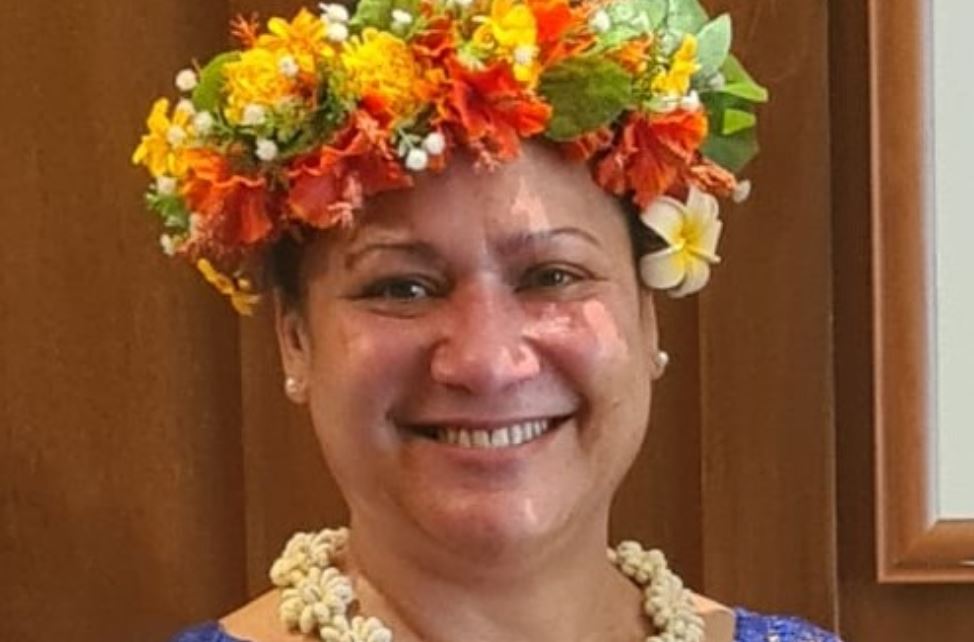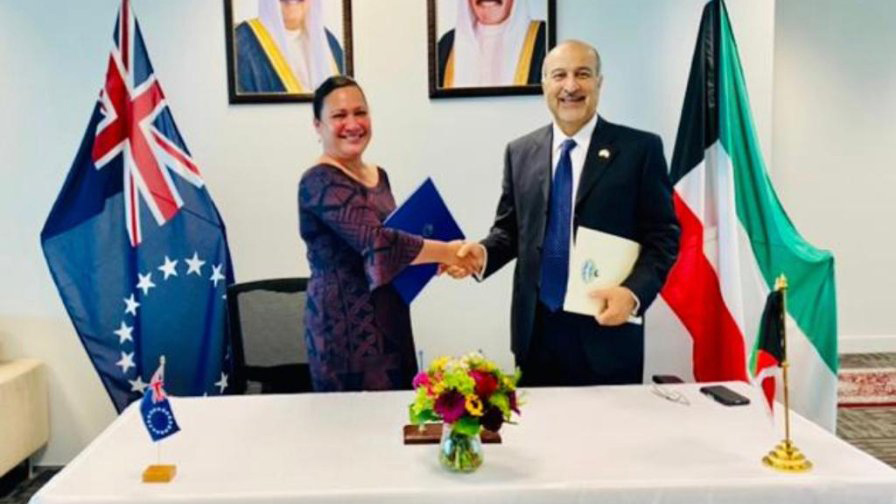Back home after a ‘surreal’ four years as high commissioner
Saturday 10 December 2022 | Written by Matthew Littlewood | Published in Local, National

Cook Islands High Commissioner to New Zealand, Elizabeth Wright-Koteka stepped down this week after serving her four-year term. MFAI/22120248
Elizabeth Wright-Koteka is back in Rarotonga after a busy four years as our country’s High Commissioner to New Zealand. She talks to Cook Islands News journalist Matthew Littlewood about her time in that role.
It was the heat that first affected her when she arrived back in Rarotonga. After spending most of her past four years in Wellington, Elizabeth Wright-Koteka admits she had to adjust to the climate.
“It’s been surreal,” Wright-Koteka says.
“I’m not sure what I’m going to do next, but I’m pleased to be home.”
Wright-Koteka was appointed to the role of high commissioner in 2018; she had previously served as chief of staff and energy commissioner with the Office of the Prime Minister.
“I was surprised to be appointed. I didn’t really believe it was going to happen, because usually it’s a political appointment, and I don’t really have strong political affiliations,” Wright-Koteka says.
She describes the role as having four “workstreams”.
“The first is keeping the relationship with New Zealand strong and the second is to focus on the relationship with other diplomatic partners. The third workstream is building the connection with the diaspora, and finally, the last workstream is strengthening the relationship with Māori of Aotearoa,” Wright-Koteka says.
“For the first couple of months, it was trying to find my feet in the role. I had met diplomats in my previous roles, but it was quite different being one myself.”
The office is based in Wellington and has two diplomats and an administrative officer, who handle a lot of work.
“We do a lot of our foreign affairs out of our High Commission office.
“The role is what you make of it. I chose to make it quite busy, and lift the visibility of the office with both the diplomatic corps and the broader community,” Wright-Koteka says.
The Cook Islands has 59 diplomatic partners, 37 of which are stationed in Wellington. The High Commission engages with all those partners on a multitude of issues.
In her term as high commissioner the Cook Islands has developed diplomatic ties with a number of countries, including Indonesia, Kuwait, Vietnam and Ireland, while the United States also formally recognised the Cook Islands as a sovereign state.
“We had a lot of engagement with the United States; that work got stepped up with their changing approach to the Pacific in the past couple of years,” she says.
“We had a meeting with the US deputy secretary of state Wendy Sherman. At first, I was sceptical, but in the weeks that followed, they worked really hard on it and finally it came to fruition.
“I think when it comes to diplomacy, the Cook Islands punches above our weight. There are some really hardworking people that make these things happen.”
Dealing with diaspora also proved a challenge for the office, she says.
“They’re spread out, and the way that Cook Islanders think, particularly if you’re away from home, they tend to think about their allegiance to particular islands, as opposed to the Cook Islands as a collective,” Wright-Koteka says.
“Mobilising the communities has been easier in the smaller places, rather than larger centres such as Auckland.”
Wright-Koteka says Covid-19 changed everything in her role.
“We had more than 300 Cook Islanders stranded in New Zealand as a result of the border closures,” she says.
“During the lockdowns, we engaged with New Zealand social services providers to provide food, accommodation, and counselling. There were a lot of distraught people because of the unknown.
Nobody knew when they would be able to go back, or when the borders would open.
“But it was difficult because we were also in lockdown, and the majority of those affected were in Auckland, rather than Wellington. It was like operating a business out of a bedroom.”
“Eventually, we were able to get everybody back.”
Wright-Koteka says part of her role during this period was providing reassurance for all the stranded Cook Islanders in New Zealand.
“You became a bit of a counsellor, really, I had to remind people things would be okay,” she says.
“I think Covid-19 strengthened the relationship between New Zealand and Cook Islands. There was a lot more engagement with New Zealand agencies, particularly when it came to financial support, vaccination rollouts and quarantine-free travel.
“When I think back, I recall how stressful that time was, but also that we managed to get through it
with two other people, and somehow carry out our other functions at the same time. It was incredible.
I said lots of prayers during that time. I think we did okay.”
Wright-Koteka says the role continuously surprised her.
“In any given day, we could be dealing with anything. For example, it could be an immigration query to a person whose ACC payments have gone wrong, to having meetings with foreign partners,” she says.
Wright-Koteka was not, as she puts it, a “career diplomat”.
“I felt confident about the foreign affairs side of things, because I always had interactions with other governments in my previous roles. I had some awesome role models to guide me, including the dean of the Wellington Diplomatic Corp Leasi Papali’i T Scanlan. He and his wife became parent figures for us over there,” she says.

The Cook Islands relationship with New Zealand remains “very strong and special”, Wright-Koteka feels.
“It’s not only because of our history, but also because the majority of our people live there. It’s where
the Cook Islands get most of their goods from. It’s a relationship that’s relevant to both parties,” she says.
But for now, back in Rarotonga, Wright-Koteka is taking every day as it comes.
“It felt good coming back,” she says.
“I’ll miss all the friends I have made, and I’ll miss the busyness. But it’s time for something else.”



















































